18th century
| Millennium |
|---|
| 2nd millennium |
| Centuries |
| Timelines |
| State leaders |
| Decades |
| Categories: |
|
Births – Deaths Establishments – Disestablishments |

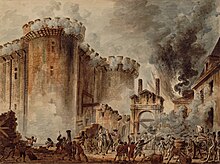

The 18th century lasted from January 1, 1701 to December 31, 1800 in the Gregorian calendar. During the 18th century, the Enlightenment culminated in the French and American revolutions. Philosophy and science increased in prominence. Philosophers dreamed of a brighter age. This dream turned into a reality with the French Revolution, although it was later compromised by the excesses of the Reign of Terror of Maximilien Robespierre. At first, the monarchies of Europe embraced Enlightenment ideals, but with the French Revolution they feared losing their power and formed broad coalitions for the counter-revolution. The Ottoman Empire underwent a protracted decline, as it failed to keep up with the technological advances in Europe. The Tulip period symbolized a period of peace and reorientation towards European society, after victory against a burgeoning Russian Empire in the Pruth River Campaign. Throughout the century various reforms were introduced with limited success.
The 18th century also marked the end of the Polish–Lithuanian Commonwealth as an independent state. The once-powerful and vast kingdom, which was able to conquer Moscow and defeat the great Ottoman armies, collapsed under numerous invasions. Its semi-democratic government system was not robust enough to rival the neighboring monarchies of the Kingdom of Prussia, the Russian Empire and the Archduchy of Austria which divided the Commonwealth territories among them, changing the landscape of Central European politics for the next hundred years.
European colonization of the Americas and other parts of the world intensified and the associated mass migrations of people grew in size as the Age of Sail continued. Great Britain became a major power worldwide with the defeat of France in North America in the 1760s and the conquest of large parts of India. However, Britain lost many of its North American colonies after the American Revolution, which resulted in the creation of the newly independent United States of America. The Industrial Revolution started in Britain in the 1770s with the production of the improved steam engine. Despite its modest beginnings in the 18th century, steam-powered machinery would radically change human society and the environment.
Western historians have occasionally defined the 18th century otherwise for the purposes of their work. For example, the "short" 18th century may be defined as 1715–1789, denoting the period of time between the death of Louis XIV of France and the start of the French Revolution with an emphasis on directly interconnected events.[1][2] To historians who expand the century to include larger historical movements, the "long" 18th century[3] may run from the Glorious Revolution of 1688 to the Battle of Waterloo in 1815[4] or even later.[5]
Events
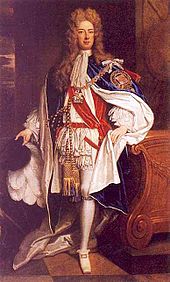

- 1700-1721: Great Northern War between Tsarist Russia and the Swedish Empire.
- 1701: Kingdom of Prussia declared under King Frederick I.
- 1701: Ashanti Empire is formed under Osei Kofi Tutu I.
- 1701–1714: The War of the Spanish Succession is fought, involving most of continental Europe.[6]
- 1701–1702: The Daily Courant and The Norwich Post become the first daily newspapers in England.
- 1702: Forty-seven Ronin attack Kira Yoshinaka and then commit seppuku in Japan.
- 1702–1715: Camisard Rebellion in France.
- 1703: Saint Petersburg is founded by Peter the Great; it is the Russian capital until 1918.
- 1703–1711: The Rákóczi Uprising against the Habsburg Monarchy.
- 1704: End of Japan's Genroku period.
- 1704: First Javanese War of Succession.[7]
- 1705: George Frideric Handel's first opera, Almira, premieres.
- 1706: War of the Spanish Succession: French troops defeated at the Battles of Ramilies and Turin.
- 1706: The first English-language edition of the Arabian Nights is published.
- 1707: The Act of Union is passed, merging the Scottish and English Parliaments, thus establishing the Kingdom of Great Britain.[8]
- 1707: After Aurangzeb's death, the Mughal Empire enters a long decline and the Maratha Empire slowly replaces it.
- 1707: Mount Fuji erupts in Japan for the first time since 1700.
- 1707: War of 27 Years between the Marathas and Mughals ends in India.
- 1708: The Company of Merchants of London Trading into the East Indies and English Company Trading to the East Indies merge to form the United Company of Merchants of England Trading to the East Indies.
- 1708–1709: Famine kills one-third of East Prussia's population.
- 1709: The Great Frost of 1709 marks the coldest winter in 500 years.
- 1709: Hotaki dynasty founded in Afghanistan.
- 1709: Charles XII of Sweden flees to the Ottoman Empire after Peter I of Russia defeats his army at the Battle of Poltava.

- 1710: The world's first copyright legislation, Britain's Statute of Anne, takes effect.
- 1710-1711: Ottoman Empire fights Russia in the Russo-Turkish War.
- 1711-1715: Tuscarora War between British, Dutch, and German settlers and the Tuscarora people of North Carolina.
- 1712: War of the Spanish Succession: The French defeat a combined Dutch-Austrian force at the Battle of Denain.
- 1712: The first shipment of coffee from Java reaches Amsterdam.[9]
- 1713: The Treaty of Utrecht ends the War of the Spanish Succession.
- 1713-1714: Tarabai establishes the rival Maratha Empire government in Kolhapur against Chattrapati Shahu.
- 1714: Accession of George I, Elector of Hanover, to the throne of Great Britain.
- 1715: The first Jacobite rising breaks out; the British halt the Jacobite advance at the Battle of Sheriffmuir; Battle of Preston.
- 1715: Louis XIV dies, leaving France greatly enlarged but deep in debt; The Regency takes power under Philippe d'Orleans.
- 1715: Pope Clement XI declares Catholicism and Confucianism incompatible.
- 1716: Establishment of the Sikh Confederacy along the present-day India-Pakistan border.
- 1717: The Netherlands, Britain and France sign the Triple Alliance.
- 1717: Surabaya rebels against the VOC.[10]
- 1718: The city of New Orleans is founded by the French in North America.
- 1718: Blackbeard (Edward Teach) is killed by Robert Maynard in a North Carolina inlet on the inner side of Ocracoke Island.
- 1718-1730: Tulip period of the Ottoman Empire.
- 1719: The Spanish attempt to restart the Jacobite rebellion fails.
- 1719: Second Javanese War of Succession.[10]

- 1720: The South Sea Bubble.
- 1720: Spanish military embarks on the Villasur expedition, traveling north from Mexico into the Great Plains.
- 1720–1721: The Great Plague of Marseille.
- 1721: Robert Walpole becomes the first Prime Minister of Great Britain (de facto).
- 1721: The Treaty of Nystad is signed, ending the Great Northern War.
- 1721: Kangxi Emperor bans Christian missionaries because of Pope Clement XI's decree.
- 1721: Peter I reforms the Russian Orthodox Church.
- 1722: Afghans conquer Iran, overthrowing the Safavid Shah Sultan Husayn.
- 1722: Kangxi Emperor of China dies.
- 1722: Bartholomew Roberts is killed in a sea battle off the African coast.
- 1722–1723: Russo-Persian War.
- 1722–1725: Controversy over William Wood's halfpence leads to the Drapier's Letters and begins the Irish economic independence from England movement.
- 1723: Slavery is abolished in Russia; Peter the Great converts household slaves into house serfs.[11]
- 1723–1730: The "Great Disaster", an invasion of Kazakh territories by the Dzungars.
- 1724: The Treaty of Constantinople is signed, partitioning Persia between the Ottoman Empire and Russia.
- 1725: The Fulani nomads take complete control of Futa Jallon and set up the first of many Fulani jihad states to come.[12]
- 1726: The enormous Chinese encyclopedia Gujin Tushu Jicheng of over 100 million written Chinese characters in over 800,000 pages is printed in 60 different copies using copper-based Chinese movable type printing.
- 1727–1729: Anglo-Spanish War.
- 1729–1735: Charles Wesley and John Wesley begin Methodism in England.
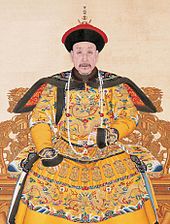
- 1730: Mahmud I takes over Ottoman Empire after the Patrona Halil revolt, ending the Tulip period.
- 1730–1760: The First Great Awakening takes place in Great Britain and North America.
- 1732–1734: Crimean Tatar raids into Russia.[13]
- 1733–1738: War of the Polish Succession.
- 1735–1739: Russo-Turkish War.
- 1735–1799: The Qianlong Emperor of China oversees a huge expansion in territory.
- 1735: Governor-General Dirck van Cloon dies, one of many victims of malaria in Batavia.[14]
- 1736: Nader Shah assumes the title of Shah of Persia and founds the Afsharid dynasty; he rules until his death in 1747.
- 1736: Qing Dynasty Chinese court painters recreate Zhang Zeduan's classic panoramic painting, Along the River During Qingming Festival.
- 1738–1756: Famine across the Sahel; half the population of Timbuktu dies.[15]
- 1738: Pope Clement XII issues In eminenti apostolatus, prohibiting Catholics from becoming Freemasons.
- 1738: Turlough O'Carolan, famous Irish harper, dies.
- 1739: Nader Shah defeats the Mughals at the Battle of Karnal and sacks Delhi.
- 1739: Great Britain and Spain fight the War of Jenkins' Ear in the Caribbean.


- 1740: Frederick the Great comes to power in Prussia.
- 1740: The British attempt to capture St. Augustine, Florida but lose to the Spanish during the Siege of St. Augustine.
- 1740–1741: Famine in Ireland kills ten percent of the population.
- 1740–1748: War of the Austrian Succession.
- 1740: 9 October, a massacre of Batavia's ethnic Chinese begins after they are suspected by the VOC of planning a rebellion; approximately 10,000 are killed and the Chinese quarter is burned.[17]
- 1741: Russians begin settling the Aleutian Islands.
- 1741: Pope Benedict XIV issues Immensa Pastorum principis against slavery.
- 1742: Marvel's Mill, the first water-powered cotton mill, begins operation in England.[18]
- 1743: The capital of the Sultanate of Mataram Kartasura fell under Geger Pecinan uprising — Raden Mas Garendi (Sunan Kuning) led Chinese mercenaries revolted against Pakubuwono II.
- 1744: The First Saudi State is founded by Mohammed Ibn Saud.[19]
- 1744: The French attempt to restart the Jacobite rebellion fails.
- 1744–1748: The First Carnatic War is fought between the British, the French, the Marathas, and Mysore in India.
- 1745: Second Jacobite rising is begun by Charles Edward Stuart in Scotland.
- 1745: 17 February, Pakubuwono II establishes a new kraton in Sala village, along with Surakarta Sunanate.
- 1747: Ahmed Shah Durrani founds the Durrani Empire in modern-day Afghanistan.
- 1748: The Treaty of Aix-La-Chapelle ends the War of the Austrian Succession and First Carnatic War.
- 1748–1754: The Second Carnatic War is fought between the British, the French, the Marathas, and Mysore in India.

- 1750: Peak of the Little Ice Age.
- 1754: The Treaty of Pondicherry ends the Second Carnatic War and recognizes Muhammed Ali Khan Wallajah as Nawab of the Carnatic.
- 1754: King's College is founded by a royal charter of George II of Great Britain.[20]
- 1754–1763: The French and Indian War, the North American chapter of the Seven Years' War, is fought in colonial North America, mostly by the French and their allies against the English and their allies.
- 1755: The Lisbon earthquake occurs.
- 1755–1763: The Great Upheaval forces transfer of the French Acadian population from Nova Scotia and New Brunswick.
- 1755: 13 February, the Treaty of Giyanti is signed, effectively partitioning the Mataram Sultanate; the VOC recognizes Mangkubumi as Sultan Hamengkubuwana I, who rules half of Central Java; Hamengkubuwana I then establishes Yogyakarta Sultanate, moves to Yogya and renames the city Yogyakarta.[21]
- 1756–1763: The Seven Years' War is fought among European powers in various theaters around the world.
- 1756–1763: The Third Carnatic War is fought between the British, the French, the Marathas, and Mysore in India.
- 1757: The Battle of Plassey signals the beginning of formal British rule in India after years of commercial activity under the auspices of the East India Company.
- 1757: 17 March, Salatiga treaty between Prince Sambernyawa with Pakubuwono III and Hamengkubuwono I further partitions the remnant of Mataram Sultanate; the Mangkunegaran Grand Duchy is established.
- 1758: British colonel James Wolfe issues Wolfe's Manifesto.
- 1759: French and Indian War: French commander Louis-Joseph de Montcalm and British commander James Wolfe die during the Battle of the Plains of Abraham.


- 1760: George III becomes King of Britain.
- 1760: Zand dynasty is founded in Iran.
- 1761: Maratha Empire defeated at Battle of Panipat.
- 1762–1796: Reign of Catherine the Great of Russia.
- 1763: The Treaty of Paris ends the Seven Years' War and Third Carnatic War.
- 1763: Kingdom of Mysore conquers the Kingdom of Keladi.
- 1765: The Stamp Act is introduced into the American colonies by the British Parliament.
- 1766–1799: Anglo-Mysore Wars.
- 1767: Burmese conquer the Ayutthaya kingdom.
- 1768: Gurkhas conquer Nepal.
- 1768–1772: War of the Bar Confederation.
- 1768–1774: Russo-Turkish War.
- 1769: Spanish missionaries establish the first of 21 missions in California.
- 1769–1770: James Cook explores and maps New Zealand and Australia.
- 1769–1773: The Bengal famine of 1770 kills one-third of the Bengal population.
- 1769: French expeditions capture clove plants in Ambon, ending the VOC monopoly of the plant.[22] (to 1772)
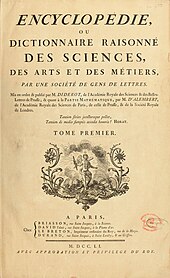

- 1770: James Cook claims the East Coast of Australia (New South Wales) for Great Britain.
- 1770–1771: Famine in Czech lands kills hundreds of thousands.
- 1770: James Cook stops at Onrust Island in the Bay of Batavia for repairs to his ship Endeavour on his voyage around the world.[23]
- 1771: The Plague Riot in Moscow.
- 1771: Richard Arkwright and his partners build the world's first water-powered mill at Cromford.
- 1772: Reformer Johann Friedrich Struensee executed in Denmark.
- 1772: Gustav III of Sweden stages a coup d'état, becoming almost an absolute monarch.
- 1772–1779: Maratha Empire fights Britain and Raghunathrao's forces during the First Anglo-Maratha War.
- 1772–1795: The Partitions of Poland end the Polish–Lithuanian Commonwealth and erase Poland from the map for 123 years.
- 1773–1775: Pugachev's Rebellion, the largest peasant revolt in Russian history.
- 1773: East India Company starts operations in Bengal to smuggle opium into China.
- 1775: John Harrison H4 and Larcum Kendall K1 marine chronometers are used to measure longitude by James Cook on his second voyage (1772–1775).
- 1775–1782: First Anglo-Maratha War.
- 1775–1783: American Revolutionary War.
- 1776: Illuminati founded by Adam Weishaupt.
- 1776: The United States Declaration of Independence is adopted by the Continental Congress in Philadelphia.
- 1776: Adam Smith publishes The Wealth of Nations.
- 1778: Tây Sơn Dynasty is established in Vietnam.
- 1778: James Cook becomes the first European to land on the Hawaiian Islands.
- 1778: 24 April, the Royal Batavian Society of Arts and Sciences is established by a group of Dutch intellectuals;[24] this institution is a pioneer of scientific efforts in Indonesia and the founder of the National Museum of Indonesia.
- 1779–1879: Xhosa Wars between British and Boer settlers and the Xhosas in the South African Republic.

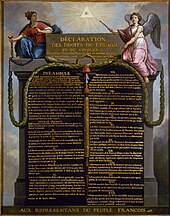
- 1780: Outbreak of the indigenous rebellion against Spanish colonization led by Túpac Amaru II in Peru.
- 1781: The city of Los Angeles is founded by Spanish settlers.
- 1781–1785: Serfdom is abolished in the Austrian monarchy (first step; second step in 1848).
- 1783: Famine in Iceland, caused by the eruption of the Laki volcano.
- 1783: Russian Empire annexes the Crimean Khanate.
- 1783: The Treaty of Paris formally ends the American Revolutionary War.
- 1785–1791: Imam Sheikh Mansur, a Chechen warrior and Muslim mystic, leads a coalition of Muslim Caucasian tribes from throughout the Caucasus in a holy war against Russian settlers and military bases in the Caucasus, as well as against local traditionalists, who followed the traditional customs and common law (Adat) rather than the theocratic Sharia.[25]
- 1785–1795: The Northwest Indian War is fought between the United States and Native Americans.
- 1787: The United States Constitution is written in Philadelphia and submitted to the states for ratification.
- 1787: Freed slaves from London establish Freetown in present-day Sierra Leone.
- 1787: Kansei Reforms instituted in Japan by Matsudaira Sadanobu.
- 1787–1792: Russo-Turkish War.
- 1788: First French Quaker community established in Congénies.
- 1788: First European settlement established in Australia at Sydney.
- 1788–1790: Russo-Swedish War (1788–1790).
- 1788: New Hampshire becomes the 9th state to ratify the United States Constitution, and by the terms of Article VII it takes effect.
- 1788–1789: Inconfidência Mineira, conspiracy against the colonial authorities in Brazil.
- 1789: George Washington is elected the first President of the United States; he serves until 1797.
- 1789: Great Britain and Spain dispute the Nootka Sound during the Nootka Crisis.
- 1789–1799: French Revolution.

- 1789: The Liège Revolution.
- 1789: The Brabant Revolution.
1790s-1800
- 1790: The United States of Belgium is proclaimed following the Brabant Revolution.
- 1790: Suppression of the United States of Belgium and re-establishment of Austrian control.
- 1790: Establishment of the Polish-Prussian Pact.
- 1791: The Constitutional Act (or Canada Act) creates the two provinces of Upper and Lower Canada in British North America.
- 1791: Suppression of the Liège Revolution by Austrian forces and re-establishment of the Prince-Bishopric of Liège.
- 1791–1795: George Vancouver explores the world during the Vancouver Expedition.
- 1791–1804: The Haitian Revolution.
- 1792–1802: The French Revolutionary Wars lead into the Napoleonic Wars, which last from 1803-1815.
- 1792: The New York Stock & Exchange Board is founded.
- 1792: Polish–Russian War of 1792.
- 1792: King Gustav III of Sweden is assassinated by a conspiracy of noblemen.
- 1792: March, Hamengkubuwana I dies.[26]
- 1793: Upper Canada bans slavery.
- 1793: The largest yellow fever epidemic in American history kills as many as 5,000 people in Philadelphia, roughly 10% of the population.[27]
- 1793–1796: Revolt in the Vendée against the French Republic at the time of the Revolution.
- 1794: Polish revolt.
- 1794: Jay's Treaty is concluded between Great Britain and the United States, by which the Western outposts in the Great Lakes are returned to the U.S. and commerce between the two countries is regulated.
- 1794: Qajar dynasty founded in Iran after replacing the Zand dynasty.
- 1795: Mohammad Khan Qajar razes Tbilisi to the ground.
- 1795: Establishment of the French-backed Batavian Republic in present-day Netherlands.
- 1795: Pinckney's Treaty between the United States and Spain grants the Mississippi Territory to the U.S.
- 1795: The Marseillaise is officially adopted as the French national anthem.
- 1795: Kamehameha I of the Island of Hawaii defeats the Oahuans at the Battle of Nu'uanu.
- 1796: Edward Jenner administers the first smallpox vaccination; smallpox killed an estimated 400,000 Europeans each year during the 18th century, including five reigning monarchs.[28]
- 1796: War of the First Coalition: The Battle of Montenotte marks Napoleon Bonaparte's first victory as an army commander.
- 1796: The British eject the Dutch from Ceylon.
- 1796: Mungo Park, backed by the African Association, is the first European to set eyes on the Niger River in Africa.
- 1796–1804: The White Lotus Rebellion against the Manchu Dynasty in China.
- 1797: Napoleon's invasion and partition of the Republic of Venice ends over 1,000 years of independence for the Serene Republic.
- 1798: The Irish Rebellion fails to overthrow British rule in Ireland.
- 1798–1800: The Quasi-War is fought between the United States and France.
- 1799: Napoleon stages a coup d'état and becomes First Consul of France.
- 1799: Dutch East India Company is dissolved.
- 1799: The assassination of the 14th Tu'i Kanokupolu, Tukuʻaho, plunges Tonga into half a century of civil war.
- 1799: Tipu Sultan is killed in a battle with British forces.
- 1800: 1 January, The bankrupt Dutch East India Company (VOC) is formally dissolved and the nationalised Dutch East Indies are established.[29]
Significant people
World leaders, politicians, military


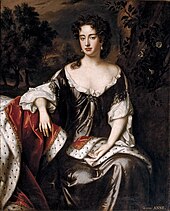

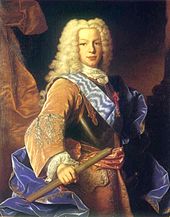

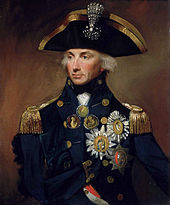






- John Adams, American statesman
- Samuel Adams, American statesman
- Ahmad Shah Abdali, Afghan King
- Ahmed III, Sultan of the Ottoman Empire
- Hyder Ali, Ruler of Mysore
- Ethan Allen, American Revolutionary Army
- Anne, Queen of Great Britain
- Marie Antoinette, Austrian-born Queen of France
- Ferdinand VI, King of Spain
- Augustus III, Elector of Saxony, King of Poland, and Grand Duke of Lithuania
- Aurangzeb, Mughal Emperor
- Bajirao I, Second Peshwa ofMaratha Empire
- Boromakot, King of Ayutthaya
- Boromaracha V, King of Ayutthaya
- Aaron Burr, American statesman
- William Cavendish, Anglo-Irish politician
- William Pitt the Younger, Prime Minister of Britain
- John Carteret, Anglo-Irish politician
- Catherine the Great, Empress of Russia
- Charles III, King of Spain, Naples, and Sicily
- Charles VI, Emperor of the Holy Roman Empire, King of Bohemia and Hungary
- Charles XII, King of Sweden, the Goths and the Wends;
- Charlotte Corday, French revolutionary
- Georges Danton, French revolutionary
- Elizabeth of Russia, Empress of Russia
- Farrukhsiyar, Emperor of Mughal
- Ferdinand I, King of Naples, Sicily, and the Two Sicilies
- Benjamin Franklin, American leader, scientist and statesman
- Juan Francisco, Spanish naval officer and explorer
- Adolf Frederick, King of Sweden, the Goths and the Wends
- Frederick the Great, King of Prussia
- George I, King of Great Britain and Ireland
- George II, King of Great Britain and Ireland
- George III, King of Great Britain and Ireland
- Olympe de Gouges, French feminist
- Robert Gray, American revolutionary, merchant, and explorer
- Gustav III, King of Sweden, the Goths and the Wends
- Guru Gobind Singh, tenth of the eleven Sikh Gurus
- Gyeongjong, King of Joseon Dynasty
- Nathan Hale, American patriot, executed for espionage by the British
- Abdul Hamid I, Sultan of Ottoman Empire
- Alexander Hamilton, American statesman
- Patrick Henry, American statesman
- Emperor Higashiyama, Emperor of Japan
- John Jay, American statesman
- Thomas Jefferson, American statesman
- Jeongjo, King of Joseon Dynasty
- John Paul Jones, American naval commander
- Joseph I, King of Portugal
- Joseph II, Austrian Emperor
- Kangxi Emperor, Chinese Emperor
- Karim Khan, Shah of Iran and King of Persia
- Marquis de Lafayette, Continental Army officer
- Louis XIV, King of France
- Louis XV, King of France
- Louis XVI, King of France
- Louis XVII, imprisoned King of France, never ruled
- James Madison, American statesman
- Madhavrao I, Peshwa/Prime Minister of Maratha Empire
- Madhavrao I Scindia, Marathan leader
- Mahmud I, Sultan of Ottoman Empire
- Alessandro Malaspina, Spanish explorer
- George Mason, American statesman
- Prince Aleksandr Menshikov, Russian statesman, generalissimo
- Michikinikwa, Miami chief and warrior
- José Moñino y Redondo, Spanish statesman
- Louis-Joseph de Montcalm, French officer
- Mustafa III, Sultan of Ottoman Empire
- Nader Shah, King of Persia
- Nakamikado, Emperor of Japan
- Horatio Nelson, British admiral
- Nanasaheb, Peshwa/Prime Minister of Maratha Empire
- Shivappa Nayaka, King of Keladi Nayaka
- Osman III, Sultan of Ottoman Empire
- Peter I (Peter the Great), Emperor of Russia
- Philip V, King of Spain
- Pontiac, Ottawa chief and warrior
- Prince Grigory Potyomkin, Russian statesman and general
- Nguyen Hue, Emperor of Tây Sơn Dynasty of Vietnam
- Qianlong Emperor, Emperor of China
- Rajaram II of Satara, Monarch of the Maratha Confederacy
- Francis II Rákóczi, Prince of Hungary and Transylvania, revolutionary leader
- Tadeusz Rejtan, Polish politician
- Paul Revere, American revolutionary leader and silversmith
- Maximilien Robespierre, French revolutionary leader
- Betsy Ross, American flag maker
- Count Pyotr Rumyantsev, Russian general
- Shah Rukh of Persia, King of Persia.
- John Russell, Anglo-Irish politician
- Lionel Sackville, Anglo-Irish politician
- Louis Antoine de Saint-Just, French revolutionary
- Sebastião de Melo, Prime Minister of Portugal
- Prithivi Narayan Shah, King of Nepal and founder of Kingdom of Nepal
- Chattrapati Shahu, Emperor of Maratha Empire
- Selim III, Sultan of Ottoman Empire
- Charles Edward Stuart, English Jacobite exile
- Sukjong, King of Joseon Dynasty
- Alexander Suvorov, Russian military leader
- Maria Theresa, Austrian Empress
- Tokugawa Ieharu, Japanese Shogun
- Tokugawa Ienobu, Japanese Shogun
- Tokugawa Ieshige, Japanese Shogun
- Tokugawa Ietsugu, Japanese Shogun
- Tokugawa Tsunayoshi, Japanese Shogun
- Tokugawa Yoshimune, Japanese Shogun
- Toussaint L'Ouverture, Haitian revolutionary leader
- Túpac Amaru II, Peruvian revolutionary
- George Vancouver, British Captain and explorer
- Robert Walpole, Prime Minister of Great Britain
- George Washington, American general and first President of the United States
- James Wolfe, British officer
- Yeongjo, King of Joseon Dynasty
Show business, theatre, entertainers


- Pierre Beaumarchais, French playwright
- Antonio Bernacchi, Italian singer
- Faustina Bordoni, Italian singer
- La Camargo, French dancer
- Barbara Campanini, Italian dancer
- Colley Cibber, English actor, poet, playwright
- La Clairon, French actress
- Fabre d'Églantine, French actor
- Farinelli, Italian singer
- Denis Fonvizin, Russian playwright
- David Garrick, English actor
- John Gay, English dramatist and poet
- Carlo Goldoni, Italian playwright
- Carlo Gozzi, Italian playwright
- Antiochus Kantemir, Russian playwright
- Kong Shangren, Chinese dramatist, poet
- Praskovia Kovalyova-Zhemchugova, Russian actress, singer
- Adrienne Lecouvreur, French actress
- Charles Macklin, Irish actor
- Chikamatsu Monzaemon, Japanese dramatist, playwright
- Jean-Georges Noverre, French dancer and balletmaster
- Marie Sallé, French dancer and choreographer
- Senesino, Italian singer
- Richard Brinsley Sheridan, Irish playwright
- Alexander Sumarokov, Russian playwright
- François-Joseph Talma, French actor
- Fyodor Volkov, Russian actor
- Wang Yun, Chinese playwright, poet
Musicians, composers



- Tomaso Albinoni, Italian composer
- Johann Sebastian Bach, German composer
- Luigi Boccherini, Italian composer
- Dmitry Bortniansky, Russian composer
- Charles Burney, English musician and music historian
- François Couperin, French composer
- William Cowper, English hymnist and poet
- Dede Efendi, Turkish/Ottoman composer
- Christoph Willibald Gluck, German composer
- Francesco Geminiani, Italian violinist, composer, and music theorist.
- George Frideric Handel, German-English composer
- Joseph Haydn, Austrian composer
- Hampartsoum Limondjian, Armenian/Ottoman composer
- Kali Mirza, Bengali composer
- Wolfgang Amadeus Mozart, Austrian composer
- Johann Pachelbel, German composer, teacher
- François-André Danican Philidor, French composer and chess master
- Jean-Philippe Rameau, French composer
- Bharatchandra Ray, Bengali composer, musician, and poet
- Antonio Salieri, Venetian composer
- Domenico Scarlatti, Italian composer.
- Antonio Stradivari, Italian violin maker
- Georg Philipp Telemann, German composer
- Antonio Vivaldi, Italian composer
- Isaac Watts, English hymnist
Visual artists, painters, sculptors, printmakers, architects



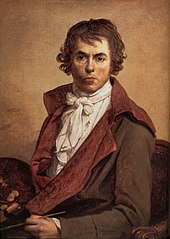
- John James Audubon, French Painter
- John Baskerville, British printer and typographer (founder of Baskerville font, Birmingham).
- Bernardo Bellotto, Italian painter
- Michel Benoist, French painter, architect, missionary in China
- William Blake, English artist and poet
- Edmé Bouchardon, French sculptor
- François Boucher, French painter
- Canaletto, Italian painter
- Giuseppe Castiglione, Italian painter, architect, missionary in China
- Jean-Baptiste-Siméon Chardin, French painter
- Vasili Bazhenov, Russian architect
- Karl Blank, Russian architect
- Vladimir Borovikovsky, Russian painter
- Leonardo Coccorante, Italian painter
- John Singleton Copley, American painter
- Jacques-Louis David, French painter
- Yury Felten, Russian architect
- Johann Bernhard Fischer von Erlach, Austrian architect
- Étienne Maurice Falconet, French sculptor
- Jean-Honoré Fragonard, French painter
- Gai Qi, Chinese painter, poet
- Thomas Gainsborough, English painter
- Francisco de Goya, Spanish painter
- Jean-Baptiste Greuze, French painter
- Giuseppe Grisoni, Italian painter
- Francesco Guardi, Italian painter
- Jacob Philipp Hackert, German painter
- Johann Lukas von Hildebrandt, Aus[trian-Italian architect
- William Hogarth, English painter and engraver
- Matvey Kazakov, Russian architect
- Georg Wenzeslaus von Knobelsdorff, German painter and architect
- Alexander Kokorinov, Russian architect
- Mikhail Ivanovich Kozlovsky, Russian sculptor
- Jean-Baptiste Lemoyne, French sculptor, student of his father
- Jean-Louis Lemoyne, French sculptor
- Dmitry Levitzky, Russian painter
- Jean-Étienne Liotard, Swiss painter
- Jiang Tingxi, Chinese artist and scholar
- Robert Le Lorrain, French sculptor
- Ivan Martos, Russian sculptor
- Luis Egidio Meléndez, Spanish painter
- Antoine Ignace Melling, French-German painter, architect
- Louis Montoyer, Belgian architect
- Nishikawa Sukenobu, Japanese printmaker, teacher
- Giovanni Paolo Panini, Italian painter
- Giovanni Battista Piranesi, Italian painter
- Matthäus Daniel Pöppelmann, German architect (Saxony)
- Bartolomeo Rastrelli, Italian-born Russian architect
- Joshua Reynolds, English painter
- Giacomo Quarenghi, Italian-born Russian architect
- Francisco Salzillo, Spanish sculptor
- Gilbert Stuart, American painter
- Suzuki Harunobu, Japanese woodblock printer
- Giovanni Battista Tiepolo, Venetian painter
- Domenico Trezzini, Italian-born Russian architect
- Kitagawa Utamaro, Japanese printmaker and painter
- Luigi Vanvitelli, Italian architect
- Juan de Villanueva, Spanish architect
- Antoine Watteau, French painter
- Yuan Mei, Chinese painter, poet, essayist
- Mikhail Zemtsov, Russian architect
Writers, poets

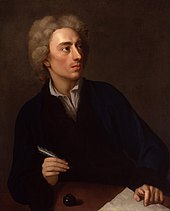
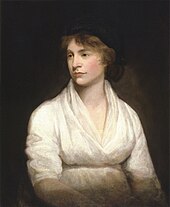
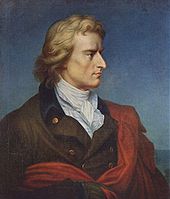
- Jane Austen, English writer
- Anna Laetitia Barbauld, English Poet, essayist, and children's author
- Pierre Beaumarchais, French writer
- Bernardin de St. Pierre, French writer
- Nicolas Boileau-Despréaux, French poet and literary critic
- James Boswell, Scottish biographer
- Frances Burney, English novelist
- Robert Burns, Scottish poet
- Cao Xueqin, Chinese writer
- Giacomo Casanova, Venetian adventurer, writer and womanizer
- Pierre Choderlos de Laclos, French writer
- Daniel Defoe, English novelist and journalist
- Gavrila Derzhavin, Russian poet
- Maria Edgeworth, Anglo-Irish novelist
- Olaudah Equiano, Eboe writer and abolitionist
- Henry Fielding, English novelist
- Bernard Le Bovier de Fontenelle, French writer
- Johann Wolfgang von Goethe, German writer
- Oliver Goldsmith, Anglo-Irish writer, poet, children's writer, and playwright
- Thomas Gray, English poet, scholar, and educator
- Eliza Haywood, English writer
- Samuel Johnson, British writer, lexicographer, poet, and literary critic
- Ferenc Kazinczy, Hungarian writer
- Ivan Krylov, Russian fabulist
- Pierre Choderlos de Laclos, French writer
- Charlotte Lennox, English novelist and poet
- Liang Desheng, Chinese poet and writer
- Matthew Lewis, English novelist and playwright
- Li Ruzhen, Chinese novelist
- Sadhak Kamalakanta, Indian poet
- Henry Mackenzie, Scottish novelist
- Jean-Paul Marat, French journalist
- Pierre de Marivaux, French writer
- Gaspar Melchor de Jovellanos, Spanish writer
- Honoré Mirabeau, French writer and politician
- John Newbery, English children's literature publisher
- Alexander Pope, English poet
- Abbe Prevost, French writer
- Pu Songling, Chinese short story writer
- Ann Radcliffe, English novelist
- Alexander Radishchev, Russian writer
- Samuel Richardson, English novelist
- Marquis de Sade, French writer and philosopher
- Ramprasad Sen, Bengali poet and singer
- Friedrich Schiller, German writer
- Walter Scott, Scottish novelist and poet
- Christopher Smart, English poet and actor
- Robert Southey, English poet and biographer
- Hester Thrale, English memoirist
- Vasily Trediakovsky, Russian poet and playwright
- Charlotte Turner Smith, English writer
- Laurence Sterne, Anglo-Irish writer
- Jonathan Swift, Anglo-Irish satirist and Church of Ireland Dean
- Ueda Akinari, Japanese writer
- Voltaire, French writer and philosopher
- Horace Walpole, English writer and politician
- Mary Wollstonecraft, British writer and feminist
- Wu Jingzi, Chinese writer
- Yuan Mei, Chinese poet, scholar and artist
Philosophers, theologians
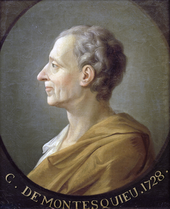


- Arai Hakuseki, Japanese scholar, writer and politician
- Baal Shem Tov, Ukrainian rabbi
- Cesare Beccaria, Italian philosopher and politician
- Jeremy Bentham, English philosopher and reformer
- George Berkeley, Irish empiricist philosopher
- Edmund Burke, British statesman and philosopher
- Étienne Bonnot de Condillac, French philosopher
- Marquis de Condorcet, French philosopher
- Frederick Cornwallis, Archbishop of Canterbury
- Erasmus Darwin, English philosopher, poet and scientist
- Denis Diderot, French writer and philosopher
- Jonathan Edwards, American theologian and philosopher
- William Godwin, English philosopher and novelist
- Aaron Halle-Wolfssohn, German writer, Jewish theologian, translator, and professor
- Johann Gottfried Herder, German philosopher, writer, and critic
- Thomas Herring, Archbishop of Canterbury
- Baron d'Holbach, French-German philosopher and writer
- David Hume, Scottish philosopher
- Matthew Hutton, Archbishop of Canterbury
- Kamo no Mabuchi, Japanese philosopher
- Immanuel Kant, German philosopher
- William Law, English theologian
- Gotthold Ephraim Lessing, German philosopher and writer
- Alphonsus Liguori, Italian bishop, founder of Redemptorists, Saint
- Joseph de Maistre, Italian philosopher and diplomat
- Moses Mendelssohn, German philosopher
- Charles de Secondat (Montesquieu), French thinker
- John Moore, Archbishop of Canterbury
- Motoori Norinaga, Japanese philosopher and scholar
- Thomas Paine, English philosopher
- Elihu Palmer, American deist
- Thomas Percy, English bishop and editor
- Joseph Perl, German writer, Jewish theologian, and educator
- John Potter, Archbishop of Canterbury
- Jean-Jacques Rousseau, French writer and philosopher
- Thomas Secker, Archbishop of Canterbury
- Seraphim of Sarov, Russian theologian
- Sugita Genpaku, Japanese scholar and translator
- Emanuel Swedenborg, Swedish scientist, thinker and mystic
- Thomas Tenison, Archbishop of Canterbury
- Christian Thomasius, German philosopher and jurist
- Giambattista Vico, Italian philosopher
- Muhammad ibn Abd al Wahhab, Arab Islamic theologian and founder of Wahhabism
- William Wake, Archbishop of Canterbury
- John Wesley, English theologian, founder of Methodism
- Nikolaus Ludwig von Zinzendorf, German religious writer and bishop
Scientists, researchers

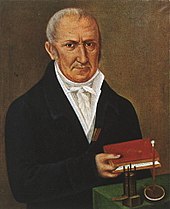




- Alessandro Volta, Italian physicist and chemist
- Maria Gaetana Agnesi, Italian mathematician
- Jean le Rond d'Alembert, French mathematician, physicist and encyclopedist
- Joseph Banks, English botanist
- Laura Bassi, Italian scientist, the first European female college teacher[30]
- Daniel Bernoulli, Swiss mathematician and physicist
- Joseph Black, Scottish chemist (discovered carbon dioxide)
- Roger Joseph Boscovich, physicist, astronomer, mathematician, philosopher, diplomat, poet, and Jesuit
- Comte de Buffon, French scientist
- Henry Cavendish, chemist (recognized Hydrogen as its own elemental substance)
- Anders Celsius, Swedish astronomer
- Anders Chydenius, Finnish philosopher and economist
- Alexis Clairaut, French mathematician
- James Cook, English navigator, explorer and cartographer
- Dai Zhen, Chinese mathematician, geographer, phonologist and philosopher
- Eugenio Espejo, Ecuadorian scientist
- Leonhard Euler, Swiss mathematician
- Daniel Gabriel Fahrenheit, German physicist and engineer
- George Fordyce, Scottish physician and chemist
- Carl Friedrich Gauss, German mathematician, physicist and astronomer
- Edward Gibbon, English historian
- Edward Jenner, English inventor of vaccination
- William Jones, English philologist
- Nikolai Karamzin, Russian historian
- Ivan Kulibin, Russian inventor
- Joseph Louis Lagrange, Italian-French mathematician and physicist
- Jean-Baptiste Lamarck, French naturalist, biologist
- Pierre Simon Laplace, French physicist and mathematician
- Antoine Lavoisier, French chemist, considered father of modern chemistry
- John Law, Scottish economist
- Pan Lei, Chinese scholar and mathematician
- Adrien-Marie Legendre, French mathematician
- Carl Linnaeus, Swedish biologist
- Mikhail Lomonosov, Russian scientist
- Edmond Malone, Irish literary scholar
- Thomas Malthus, English economist
- Pierre Louis Maupertuis, French mathematician
- Peter Simon Pallas, German-Russian zoologist and botanist
- Joseph Priestley, dissenting minister and chemist
- René Antoine Ferchault de Réaumur, French scientist
- François Quesnay, French economist
- Carl Wilhelm Scheele, Swedish chemist (discovered oxygen)
- John Smeaton, civil engineer and physicist
- Adam Smith, Scottish economist and philosopher
- Vasily Tatishchev, Russian historian and ethnographer
- Anne-Robert-Jacques Turgot, Baron de Laune, French economist
- Antonio de Ulloa, Spanish scientist and explorer
- James Watt, Scottish scientist and inventor
- John Whitehurst, English geologist
Outlaws


- Maurice Benyovszky, Hungarian adventurer, "King of Madagaskar"
- Anne Bonny, Irish pirate
- Alessandro Cagliostro, Italian adventurer and occultist
- Robert-François Damiens, French domestic worker whose attempted assassination of King Louis XV
- Olivier Levasseur, French pirate
- Samuel Mason, American Revolutionary War soldier and river pirate/highwayman
- Yemelyan Pugachev, Russian cossack and rebel leader
- John Rackham (Calico Jack), English pirate
- Mary Read, English pirate
- Bartholomew Roberts, Welsh pirate
- Count of St. Germain, adventurer, alchemist and occultist
- Princess Tarakanoff, Russian adventurer
- Edward Teach (Blackbeard), English pirate
Inventions, discoveries, introductions
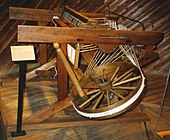
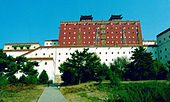
- 1709: The first piano was built by Bartolomeo Cristofori
- 1711: The Tuning fork was invented by John Shore
- 1712: The Steam Engine invented by Thomas Newcomen
- 1714: The Mercury thermometer by Daniel Gabriel Fahrenheit
- 1717: The diving bell was successfully tested by Edmond Halley, sustainable to a depth of 55 ft
- c. 1730: The octant navigational tool was developed by John Hadley in England, and Thomas Godfrey in America
- 1733: Flying shuttle invented by John Kay
- 1736: Europeans encountered rubber – the discovery was made by Charles-Marie de la Condamine while on expedition in South America. It was named in 1770 by Joseph Priestley
- c. 1740: Modern steel was developed by Benjamin Huntsman
- 1741: Vitus Bering discovers Alaska
- 1745: The Leyden jar invented by Ewald Georg von Kleist was the first electrical capacitor
- 1752: The Lightning rod invented by Benjamin Franklin
- 1755: The tallest wooden Bodhisattva statue in the world is erected at Puning Temple, Chengde, China.
- 1764: The Spinning Jenny created by James Hargreaves brought on the Industrial Revolution
- 1765: James Watt enhances Newcomen's steam engine, allowing new steel technologies
- 1761: The problem of Longitude was finally resolved by the fourth chronometer of John Harrison
- 1763: Thomas Bayes publishes first version of Bayes' Theorem, paving the way for Bayesian probability
- 1768–1779: James Cook mapped the boundaries of the Pacific Ocean and discovered many Pacific Islands
- 1771: The enormous Putuo Zongcheng Temple complex of Chengde, China is completed
- 1773–1782: The Qing Dynasty huge literary compilation Siku Quanshu
- 1774: Joseph Priestley discovers "dephlogisticated air" Oxygen
- 1775: Joseph Priestley first synthesis of "phlogisticated nitrous air" Nitrous Oxide "laughing gas"
- 1776: First improved steam engines installed by James Watt
- 1776: The Steamboat invented by Claude de Jouffroy
- 1777: The Circular saw invented by Samuel Miller
- 1779: Photosynthesis was first discovered by Jan Ingenhousz
- 1781: William Herschel announces discovery of Uranus
- 1784: The Bifocals invented by Benjamin Franklin
- 1784: The Argand lamp invented by Aimé Argand[31]
- 1785: The Power loom invented by Edmund Cartwright
- 1785: The Automatic flour mill invented by Oliver Evans
- 1786: The Threshing machine invented by Andrew Meikle
- 1787: Jacques Charles discovers Charles's Law
- 1789: Antoine Lavoisier discovers the law of conservation of mass, the basis for chemistry, and begins modern chemistry
- 1798: Edward Jenner publishes a treatise about smallpox vaccination
- 1798: The Lithographic printing process invented by Alois Senefelder[32]
- 1799: Rosetta stone discovered by Napoleon's troops
Literary and philosophical achievements
- 1703: The Love Suicides at Sonezaki by Chikamatsu first performed
- 1704–1717: One Thousand and One Nights translated into French by Antoine Galland. The work becomes immensely popular throughout Europe.
- 1704: A Tale of a Tub by Jonathan Swift first published
- 1712: The Rape of the Lock by Alexander Pope (publication of first version)
- 1719: Robinson Crusoe by Daniel Defoe
- 1725: The New Science by Giambattista Vico
- 1726: Gulliver's Travels by Jonathan Swift
- 1728: The Dunciad by Alexander Pope (publication of first version)
- 1744: A Little Pretty Pocket-Book becomes one of the first books marketed for children
- 1748: Chushingura (The Treasury of Loyal Retainers), popular Japanese puppet play, composed
- 1748: Clarissa by Samuel Richardson
- 1749: The History of Tom Jones, a Foundling by Henry Fielding
- 1751: Elegy Written in a Country Churchyard by Thomas Gray published
- 1751–1785: The French Encyclopédie
- 1755: A Dictionary of the English Language by Samuel Johnson
- 1759: Candide by Voltaire
- 1759: The Theory of Moral Sentiments by Adam Smith
- 1759–1767: Tristram Shandy by Laurence Sterne
- 1762: Emile: or, On Education by Jean-Jacques Rousseau
- 1762: The Social Contract, Or Principles of Political Right by Jean-Jacques Rousseau
- 1774: The Sorrows of Young Werther by Goethe first published
- 1776: Ugetsu Monogatari (Tales of Moonlight and Rain) by Ueda Akinari
- 1776: The Wealth of Nations, foundation of the modern theory of economy, was published by Adam Smith
- 1776–1789: The History of the Decline and Fall of the Roman Empire was published by Edward Gibbon
- 1779: Amazing Grace published by John Newton
- 1779–1782: Lives of the Most Eminent English Poets by Samuel Johnson
- 1781: Critique of Pure Reason by Immanuel Kant (publication of first edition)
- 1781: The Robbers by Friedrich Schiller first published
- 1782: Les Liaisons dangereuses by Pierre Choderlos de Laclos
- 1786: Poems, Chiefly in the Scottish Dialect by Robert Burns
- 1787–1788: The Federalist Papers by Alexander Hamilton, James Madison, and John Jay
- 1788: Critique of Practical Reason by Immanuel Kant
- 1789: Songs of Innocence by William Blake
- 1790: Journey from St. Petersburg to Moscow by Alexander Radishchev
- 1790: Reflections on the Revolution in France by Edmund Burke
- 1791: Rights of Man by Thomas Paine
- 1792: Vindication of the Rights of Women by Mary Wollstonecraft
- 1794: Songs of Experience by William Blake
- 1798: Lyrical Ballads by William Wordsworth and Samuel Taylor Coleridge
- 1798: An Essay on the Principle of Population published by Thomas Malthus
- (mid-18th century): The Dream of the Red Chamber (authorship attributed to Cao Xueqin), one of the most famous Chinese novels
Musical works
- 1711: Rinaldo, Handel's first opera for the London stage, premiered
- 1721: Brandenburg concertos by J.S. Bach
- 1723: The Four Seasons, violin concertos by Antonio Vivaldi, composed
- 1724: St John Passion by J.S. Bach
- 1727: St Matthew Passion composed by J.S. Bach
- 1733: Hippolyte et Aricie, first opera by Jean-Philippe Rameau
- 1741: Goldberg Variations for harpsichord published by Bach
- 1742: Messiah, oratorio by Handel premiered in Dublin
- 1749: Mass in B Minor by J.S. Bach assembled in current form
- 1751: The Art of Fugue by J.S. Bach
- 1762: Orfeo ed Euridice, first "reform opera" by Gluck, performed in Vienna
- 1786: The Marriage of Figaro, opera by Mozart
- 1787: Don Giovanni, opera by Mozart
- 1788: Jupiter Symphony (Symphony No.41) composed by Mozart
- 1791: The Magic Flute, opera by Mozart
- 1791–1795: London symphonies by Haydn
- 1798: The Creation, oratorio by Haydn first performed
Decades and years
References
- ^ Anderson, M. S. (1979). Historians and the Eighteenth-Century Europe, 1715–1789. Oxford University Press. ISBN 978-0-19-822548-5. OCLC 185538307.
- ^ Ribeiro, Aileen (2002). Dress in Eighteenth-Century Europe 1715-1789 (revised edition). Yale University Press. ISBN 978-0-300-09151-9. OCLC 186413657.
- ^ Baines, Paul (2004). The Long 18th Century. London: Arnold. ISBN 978-0-340-81372-0.
- ^ Marshall, P. J. (Editor) (2001). The Oxford History of the British Empire: Volume II: The Eighteenth Century (Oxford History of the British Empire). Oxford University Press, USA. ISBN 978-0-19-924677-9. OCLC 174866045.
{{cite book}}:|author=has generic name (help), "Introduction" by P. J. Marshall, page 1 - ^ O'Gorman, Frank (1997). The Long Eighteenth Century: British Political and Social History 1688-1832 (The Arnold History of Britain Series). A Hodder Arnold Publication. ISBN 978-0-340-56751-7. OCLC 243883533.
- ^ "War of the Spanish Succession, 1701-1714". Historyofwar.org. Retrieved 2009-04-25.
- ^ Ricklefs (1991), page 82
- ^ Historic uk – heritage of britain accommodation guide (2007-05-03). "The history of Scotland – The Act of Union 1707". Historic-uk.com. Archived from the original on 8 April 2009. Retrieved 2009-04-25.
{{cite web}}: Unknown parameter|deadurl=ignored (|url-status=suggested) (help) - ^ Moore (Ed) (1999), p90
- ^ a b Ricklefs (1991), page 84
- ^ "Welcome to Encyclopædia Britannica's Guide to History". Britannica.com. 1910-01-31. Archived from the original on 16 April 2009. Retrieved 2009-04-25.
{{cite web}}: Unknown parameter|deadurl=ignored (|url-status=suggested) (help) - ^ "Usman dan Fodio (Fulani leader)". Britannica.com. Retrieved 2009-04-25.
- ^ "List of Wars of the Crimean Tatars". Zum.de. Archived from the original on 12 March 2009. Retrieved 2009-04-25.
{{cite web}}: Unknown parameter|deadurl=ignored (|url-status=suggested) (help) - ^ Ricklefs (1991), page 86
- ^ "Len Milich: Anthropogenic Desertification vs 'Natural' Climate Trends". Ag.arizona.edu. 1997-08-10. Retrieved 2009-04-25.
- ^ "A guide to Scottish clans". Unique-cottages.co.uk. Archived from the original on May 11, 2008. Retrieved 2009-04-25.
{{cite web}}: Unknown parameter|deadurl=ignored (|url-status=suggested) (help) - ^ Ricklefs (1991), page 87
- ^ Wadsworth, Alfred P.; Mann, Julia De Lacy (1931). The Cotton Trade and Industrial Lancashire, 1600-1780. Manchester University Press. p. 433. OCLC 2859370.
{{cite book}}: Invalid|ref=harv(help) - ^ "Saudi Arabia – The Saud Family and Wahhabi Islam". Countrystudies.us. Retrieved 2009-04-25.
- ^ "History". Columbia University.
- ^ Ricklefs (1991), page 93
- ^ Ricklefs (1991), page 102
- ^ Heuken (2000), page 307
- ^ Rosi, Adele (1998). Museum Nasional Guide Book. Jakarta: PT Indo Multi Media,Museum Nasional and Indonesian Heritage Society. p. 4.
- ^ "Sufism in the Caucasus". Islamicsupremecouncil.org. Archived from the original on February 23, 2009. Retrieved 2009-04-25.
{{cite web}}: Unknown parameter|deadurl=ignored (|url-status=suggested) (help) - ^ Ricklefs (1991), page 101
- ^ "Yellow Fever Attacks Philadelphia, 1793". EyeWitness to History. Archived from the original on 7 June 2007. Retrieved 2007-06-22.
{{cite web}}: Unknown parameter|deadurl=ignored (|url-status=suggested) (help) - ^ Riedel S (2005). "Edward Jenner and the history of smallpox and vaccination". Proc (Bayl Univ Med Cent). 18 (1): 21–5. PMC 1200696. PMID 16200144.
- ^ Ricklefs (1991), page 106
- ^ Porter, Roy (Editor) (2003). The Cambridge History of Science, Volume 4: The Eighteenth Century (The Cambridge History of Science). Cambridge University Press. ISBN 978-0-521-57243-9. OCLC 123123201.
{{cite book}}:|author=has generic name (help), "The Philosopher's Beard: Women and Gender in Science" by Londra Schiebinger, pages 184–210 - ^ Encyclopædia Britannica's Great Inventions, Encyclopædia Britannica Archived 2008-08-07 at the Wayback Machine
- ^ Meggs, Philip B. A History of Graphic Design. (1998) John Wiley & Sons, Inc. p 146 ISBN 978-0-471-29198-5
Further reading
- Jeremy Black and Roy Porter, eds. A Dictionary of Eighteenth-Century World History (1994) 890pp
- Klekar, Cynthia. “Fictions of the Gift: Generosity and Obligation in Eighteenth-Century English Literature.” Innovative Course Design Winner. American Society for Eighteenth-Century Studies: Wake Forest University, 2004. <http://asecs.press.jhu.edu>. Refereed.
- The Wallace Collection, London, houses one of the finest collections of 18th-century decorative arts from France, England and Italy, including paintings, furniture, porcelain and gold boxes.
